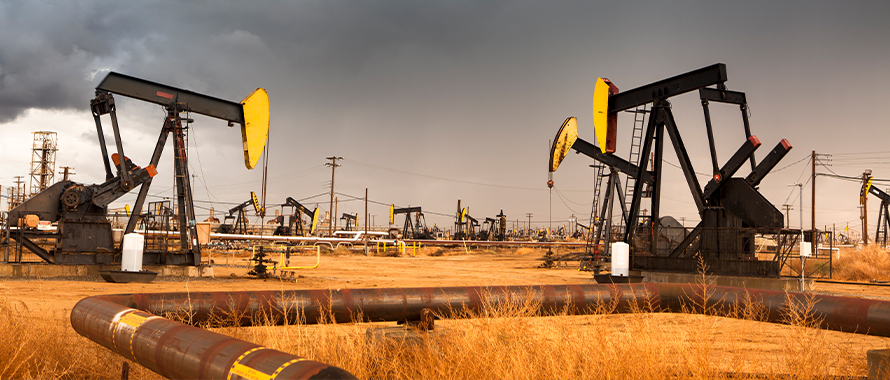As the energy industry continues to rebound after a challenging year, Crain’s Content Studio recently spoke with Cree Teel, Vice President, Broker, Burns & Wilcox Brokerage, Dallas, Texas, to learn more about Energy Insurance.
What are the greatest risks in the energy industry today?
C.T.: In my opinion, the greatest risk is the price of oil. When prices dip below the break-even point in terms of profitability, there’s no work, budgets are cut, and everything is operated on a margin to stay afloat, including safety and loss control. Also, a big pain point right now for any company with a fleet is auto losses. If there is a downturn in the oil and gas industry again and prices tank, companies may not be able to maintain their fleet of automobiles. That is when poor maintenance can lead to accidents on the road. A lot of times, these oil and gas vehicles have to go on roads that are not always in the best condition to get to a job site. They have to pay special attention to the maintenance of their vehicles, including proper brakes and lights.
What should companies be aware of relative to this risk?
C.T.: They must maintain safety and risk-reducing measures to keep claims frequency and severity down; thereby, reducing their insurance costs.
Which Energy Insurance policies can help them respond to these threats?
C.T.: Energy Insurance policies include Commercial General Liability (CGL) Insurance, Commercial Auto Insurance, Commercial Property Insurance, Pollution Legal Liability Insurance, Transportation Pollution Liability Insurance, Professional Liability Insurance, Errors & Omissions Insurance and Excess Liability Insurance. When times are tough for the oil and gas industry, companies still have to meet certain insurance requirements to get jobs and stay compliant with their contracts, especially when it comes to Umbrella/Excess Liability Insurance limits. During COVID, when the price of oil tanked and many oil and gas companies were struggling, I was able to get creative with insurance placements to get them the limits they needed so they could get work yet reduce insurance costs. I achieved this via project- and client-specific Excess Liability Insurance policies.
How has COVID-19 affected the Energy Insurance market?
C.T.: When COVID-19 was in full swing, no one was traveling; therefore, there was an oversupply of oil and gas with no demand for it, so the price of crude tanked to negative prices. Insurance companies had to get creative on premium adjustments, extensions, and so on.
What steps should companies take to complement insurance coverage from a prevention standpoint?
C.T.: Companies should focus on risk management and be sure to review their contracts. They should make sure they are not entering into contracts that hold them liable for everything; for the smaller oil and gas companies, this can be a challenge because if they want work, they often have to take whatever they can get. They should definitely talk to their insurance broker about how they can protect themselves.
What advice would you give brokers to increase their success rates with these products?
C.T.: I think many brokers and agents do not know that they can get creative with Excess Liability Insurance placements and should speak to a wholesaler, such as Burns & Wilcox and Burns & Wilcox Brokerage, to figure out how to do it. Not many insurance carriers will do it, so you need to work with a wholesaler who has the experience and carrier relationships to get it done.
What questions should brokers be asking clients relative to these products?
C.T.: What limits do their master service agreements or contracts require? How many of their clients have the higher limit requirements? Does it make sense to do a client- or project-specific Excess Liability Insurance policy based on the insured’s needs and budget?
What advice would you give brokers on targeting people to sell this coverage to?
C.T.: If you are in an area where oil and gas is prevalent, it is really all about relationships. Having strong relationships is important.
Energy Insurance policies
WHY YOUR CLIENTS MIGHT NEED THEM: The oil, gas and energy industry faces unique exposures, including pollution risks and perils that accompany transportation and storage of gas and oil. Companies need to work with an expert who understands the industry and can find creative solutions to mitigate risk while keeping an eye on the volatile price of oil, which often impacts the companies’ bottom lines.
PROTECTS AGAINST: Energy Insurance policies protect against general liability, property damage or destruction, pollution, workers compensation and more.
EXPERT OPINION: “I think many brokers do not know that they can get creative with Excess Liability Insurance limit placements and should speak to a wholesaler … Not many insurance carriers will do it, so you need to work with a wholesaler who will and who has the relationships to get it done,” said Cree Teel, Vice President, Broker, Burns & Wilcox Brokerage, Dallas, Texas.






